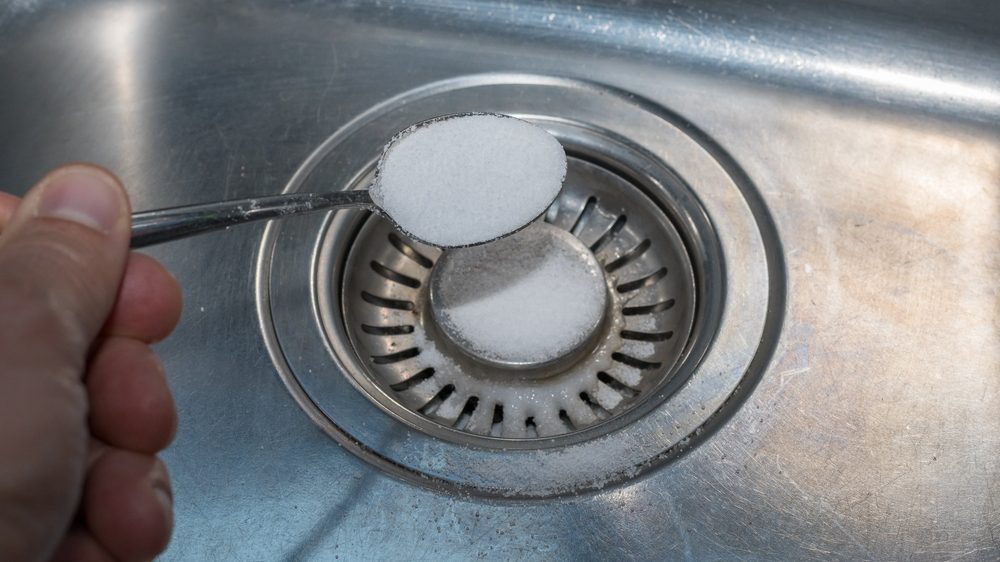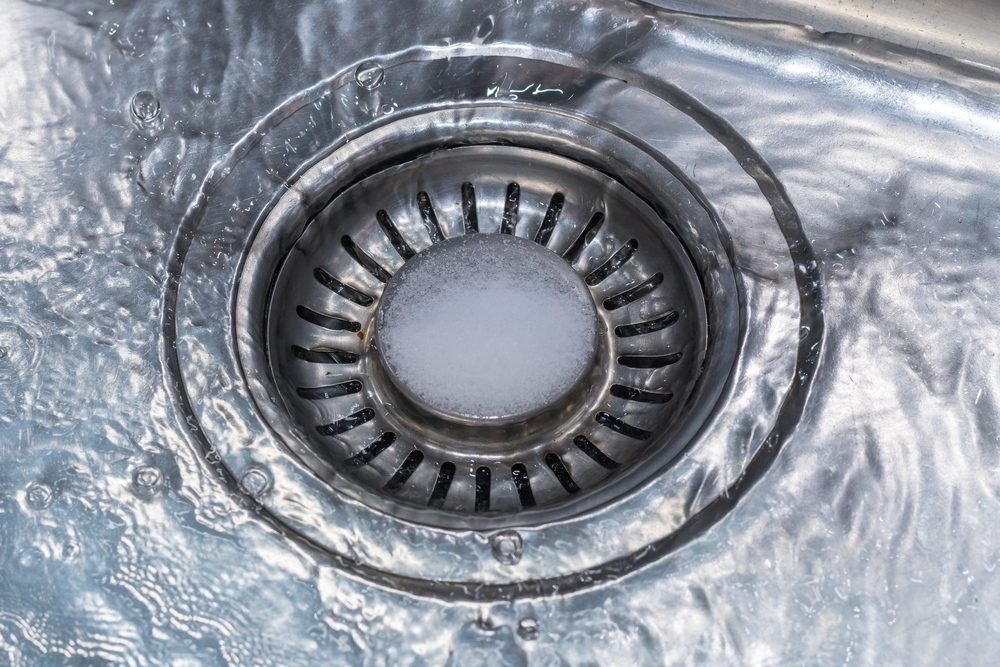
Have you ever faced a clogged drain and considered using home remedies to fix it? Home solutions are often the quickest and most cost-effective methods for household issues. Remember to be cautious about the substances you use, as the wrong choice can transform a minor inconvenience into a costly repair job. So, is it safe to pour salt down the drain in your kitchen or bathroom?
Before you reach for that salt shaker, it’s essential to understand the potential impacts of using salt in your drains. Could this common kitchen ingredient be the solution or part of the problem? We have created an extensive outline to help you learn more about proper drain maintenance.
Pouring Salt Down Drain: Is It Worth It?
In the ever-evolving world of internet home remedies, one particularly intriguing idea that went viral is using salt to unclog drains. The advice to pour salt down your drain has intrigued many homeowners facing the common issue of a clogged sink.
Despite its popularity, this tip lacks substantial evidence or expert backing, raising questions about its effectiveness. Why pour salt down the drain in the first place?
Behind the Myth
Why did this salty method gain traction? The logic seems straightforward at first. Salt, known for its coarse texture, is assumed to be capable of breaking up the substances causing the blockage in your pipes. Additionally, there is a belief that salt’s chemical properties could react with the clog material, leading to a resolution.
However, this method to fix your clogged sink doesn’t hold up in practice. Using a significant amount of salt could potentially offer some minor relief, but the notion of regularly pouring large quantities of salt down your drain is not advisable and could lead to further plumbing complications.
Read More: What Are the Advantages and Disadvantages of Low-Flow Faucets?
Limitation of Salt
If you are disappointed to learn about the ineffectiveness of salt as a solo solution, there is a silver lining. While not a standalone remedy for unclogging drains, salt plays a role in certain homemade mixtures to address minor plumbing issues.
Salt is often combined with baking soda to form a concoction that alleviates clogged drains and fruit fly problems. However, the success of these mixtures is inconsistent and their effectiveness depends on the severity of the clog. More significant blockages are less likely to be resolved with such remedies. Though these mixtures may not always clear a clog, they can neutralize unpleasant odors from a clogged sink.

The Risks of Boiling Water and Salt
In do-it-yourself (DIY) plumbing solutions, combining boiling water and salt has been touted as an effective method for unclogging drains. However, this approach carries significant risks that homeowners should be aware of. Pouring boiling water down your drain, mainly when mixed with salt, poses several hazards that can result in ineffective clog removal and severe damage to your plumbing and fixtures.
The immediate danger of splashback is a primary concern. Boiling water and salt may splash back up if it’s poured down a drain. This can lead to severe burns, mainly if the water is mixed with salt, which can exacerbate the severity of the burn.
For those with porcelain sinks, the introduction of boiling water can be especially damaging. Even though porcelain is durable, it’s still susceptible to thermal shock. The rapid temperature change caused by pouring boiling water can lead to cracking or even complete breakage of the sink. This renders the sink unusable and requires costly repairs or replacement.
Moreover, homes equipped with PVC piping must be cautious about using boiling water as a clog-clearing method. PVC pipes are designed to withstand certain temperature thresholds, and exposure to boiling water can weaken or deform these pipes. Over time, this can lead to joint failures, leaks, or even burst pipes, resulting in significant water damage and expensive plumbing repairs in your house.
The combination of salt and boiling water in your drains also raises concerns. Salt can corrode certain metal pipes over time, especially with high temperatures. This corrosion can weaken pipes, leading to leaks and long-term damage that may not be immediately visible but can cause substantial future issues.
Consider safer and more effective alternatives, such as professional drain clearing services. These methods can help you avoid the hazards of pouring boiling water and salt down the drain, ensuring your plumbing system remains intact and functional.
Read More: What is a Line Wire Used for? Applications and Tips
The Takeaway: Don’t Pour Salt Down Your Drain
While salt might seem like an easy and inexpensive fix, this method’s potential risks and ineffectiveness outweigh any perceived benefits. The reality is that home remedies (including remedies involving salt) often fall short of resolving more significant plumbing issues.
Instead of resorting to such uncertain methods, the safer and more effective approach is to call a professional plumber. Tackling plumbing problems without proper knowledge and tools can turn a minor issue into a major project. Professional plumbers have the expertise, experience, and equipment to diagnose and fix your plumbing issues efficiently and safely.

Professional Drain Cleaning and Hydro Jetting Services
If you are facing a clogged sink or similar plumbing concern, our team of certified plumbers in Centreville, VA are available to help you with your drain issues. We offer extensive drain cleaning services and hydro-jetting solutions for homeowners. Our team will perform an inspection to diagnose and locate the blockage in your drain pipes.
You can book a meeting online to arrange for a professional assessment and solution. This approach ensures that your plumbing problem is resolved effectively and helps avoid the pitfalls of do-it-yourself (DIY) remedies that could lead to further damage and expenses. Give our professionals a call at (703) 543-9649 to receive assistance with a clogged drain in your bathroom or kitchen.

